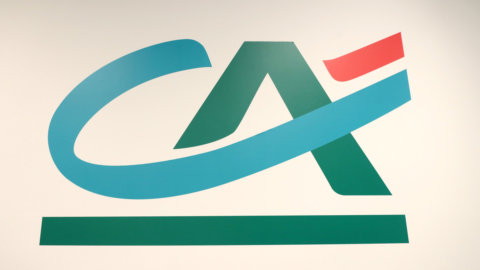The ECB's concerns about the economic crisis triggered by the Covid-19 pandemic shift "from liquidity risks in the non-financial corporate sector to their budgetary vulnerability”. This was stated by Christine Lagarde, speaking before the Economic and Monetary Affairs Committee of the European Parliament, this time as president of the Systemic Risk Board (ESRB). The body, specified the number one of the ECB has moved the focus of his vigilance.
According to Lagarde, "it is important to avoid that the combination of high debt and weaker profits, especially in the sectors hardest hit by the crisis, leads to bankruptcies of profitable companies in the medium term", because "this could increase the social and economic cost of this crisis" and "increase the riskiness in bank portfolios". It is equally important to efficiently deal with insolvencies of unprofitable firms, so that resources can be reallocated more productively, he explained, underlining that “the strong growth of loans in the first phase of the pandemic, aided by generous support measures to liquidity, has led to greater corporate debt", especially "small and vulnerable sectors", and "this has also increased the exposure of the banking sector".
In short, the healthiest companies must be accompanied on the recovery path, being careful not to expose themselves to those risks that the community banks have laboriously tried to reduce in the pre-pandemic period. For banking institutions "the priority is to fully reflect credit risk in loan classification and provisioning in a timely manner", and "to address asset quality issues, they may need to further strengthen their ability to manage and resolve credit NPLs, including by seeking, on a case-by-case basis, debt restructuring solutions for sustainable but over-indebted borrowers,” Lagarde said.
On the situation of the banks, he recalled that the sufferings have declined, stabilizing at lower levels (2,6% of total loans at the end of 2020) but that "we see a deterioration in the quality of the assets and for this reason we are very attentive to stage 2 loans, those slightly at risk". Lagarde still thinks it's okay banking union completed finding an agreement between governments on the single bank deposit guarantee system.
The number one of the ESRB and the ECB then launched a message to governments, the priority of which must be to “manage a smooth transition from liquidity support to more targeted solvency support for viable businesses”. For all the others, i.e. for companies that turn out to be unprofitable, "governments should ensure the application of efficient insolvency proceedings".
Speaking of the economic situation in the EU, Lagarde said that "improving prospects thanks to rapid progress in vaccination campaigns have reduced the likelihood of severe scenarios". On the basis of this assessment which, he added, last week the Esrb board indicated that "if the conditions of the economy and the financial sector do not deteriorate, our recommendation on the restriction of dividend distributions during the pandemic it could expire at the end of September 2021”. A decision that will be examined at the next ESRB board meeting, scheduled for September 23, 2021.





